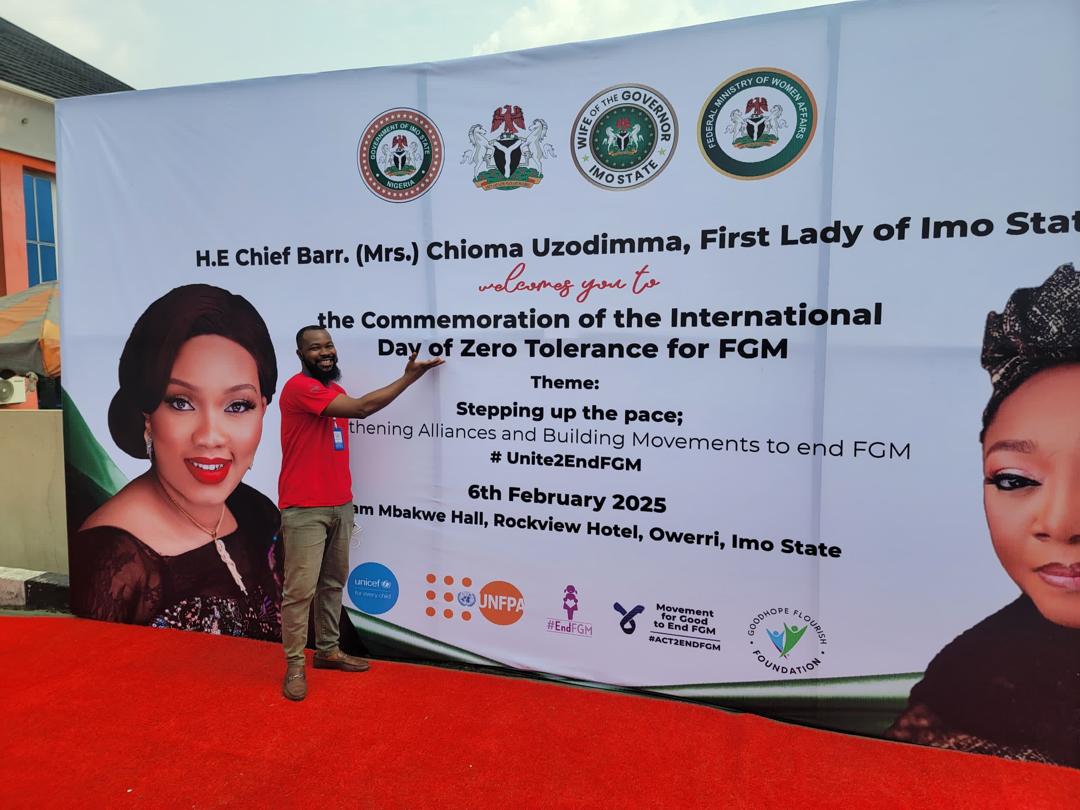
Commemorating the International Day of Zero Tolerance for Female Genital Mutilation: A Call to Action
As the world marks the International Day of Zero Tolerance for Female Genital Mutilation (FGM), it presents an important occasion to reaffirm our global commitment to ending this harmful practice that continues to affect millions of women and girls worldwide. At CSAAE, we stand in solidarity with survivors of FGM and remain dedicated to raising awareness about the severe consequences of this violation of human rights.
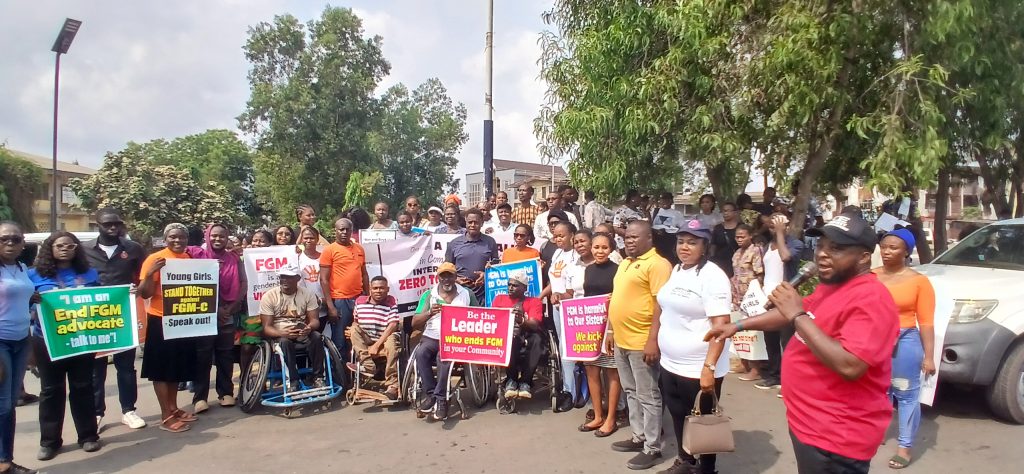
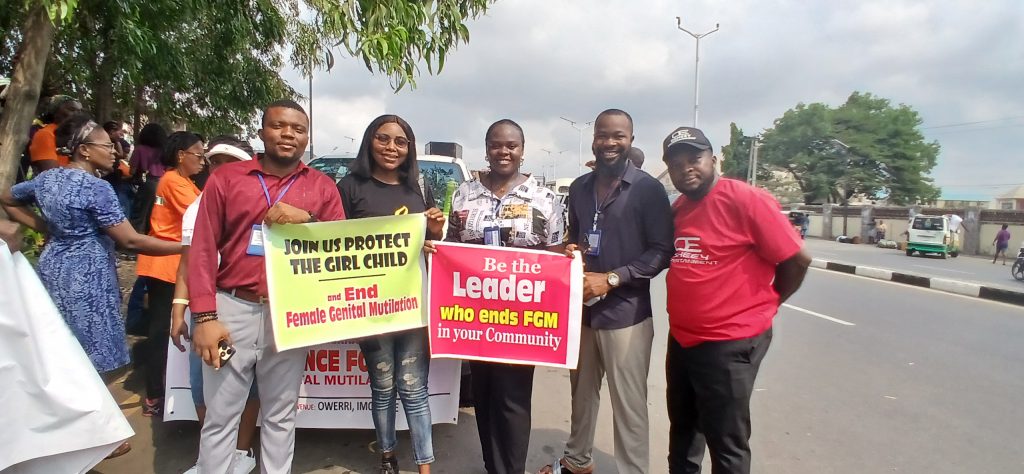
As part of our advocacy, we took part in a march through the streets of Owerri yesterday, calling for the elimination of FGM and expressing our unwavering support for those impacted. While such events are significant, the fight against FGM requires ongoing action and engagement. .
The Prevalence of FGM in Imo State
Imo State, according to the United Nations Children’s Fund (UNICEF), has the highest rate of FGM in Nigeria’s southeast region. Recent data from the Nigeria Multiple Indicator Cluster Survey (MICS) 2021 revealed alarming figures: 38% of women aged 15 to 49 and 9.7% of girls aged 0 to 14 have undergone FGM in Imo. These statistics paint a troubling picture, highlighting the critical need for intensified advocacy, education, and intervention.
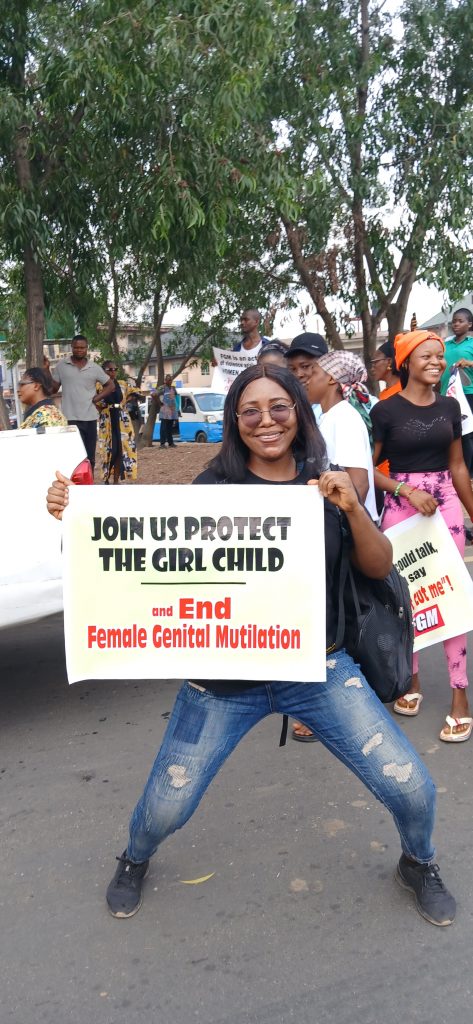
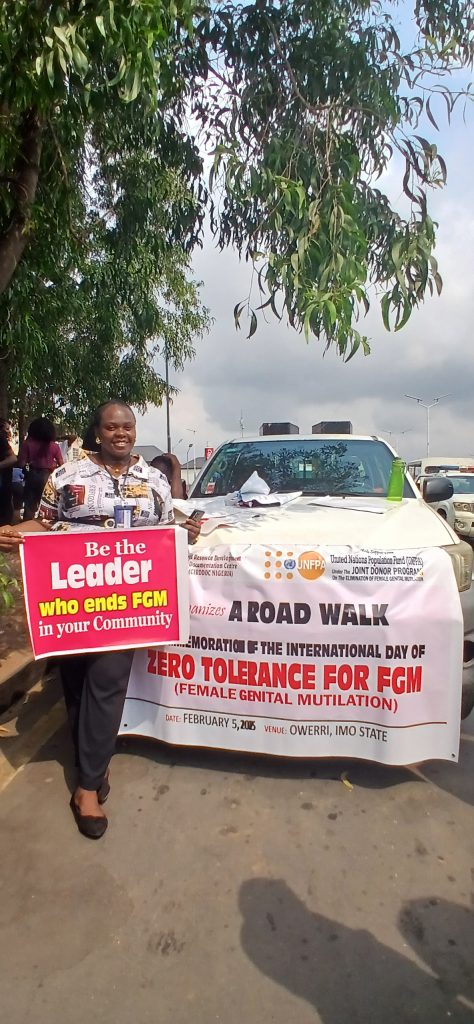
Despite the existence of child rights laws, the Violence Against Persons Prohibition Act, and numerous declarations from communities committing to abandon the practice, FGM persists. The underlying causes are deeply rooted in cultural beliefs, misinformation, and societal pressures. The challenge now lies in amplifying the voices of those actively working to end FGM and fortifying collective efforts to put an end to this practice once and for all.
The Dangers of FGM
FGM is widely recognized as a violation of human rights, with both immediate and long-term consequences. The physical risks are severe, including excessive bleeding, infections, and complications during childbirth. Long-term effects can include chronic pain, psychological trauma, and significant challenges in sexual and reproductive health. Beyond the health risks, FGM is a cultural practice designed to control women’s bodies and restrict their autonomy.
The economic toll of FGM is also substantial. Public health physicians and analysts estimate that managing the complications resulting from FGM costs approximately $1.4 billion annually. This economic burden underscores the far-reaching consequences of FGM and emphasizes the importance of prevention and intervention efforts.
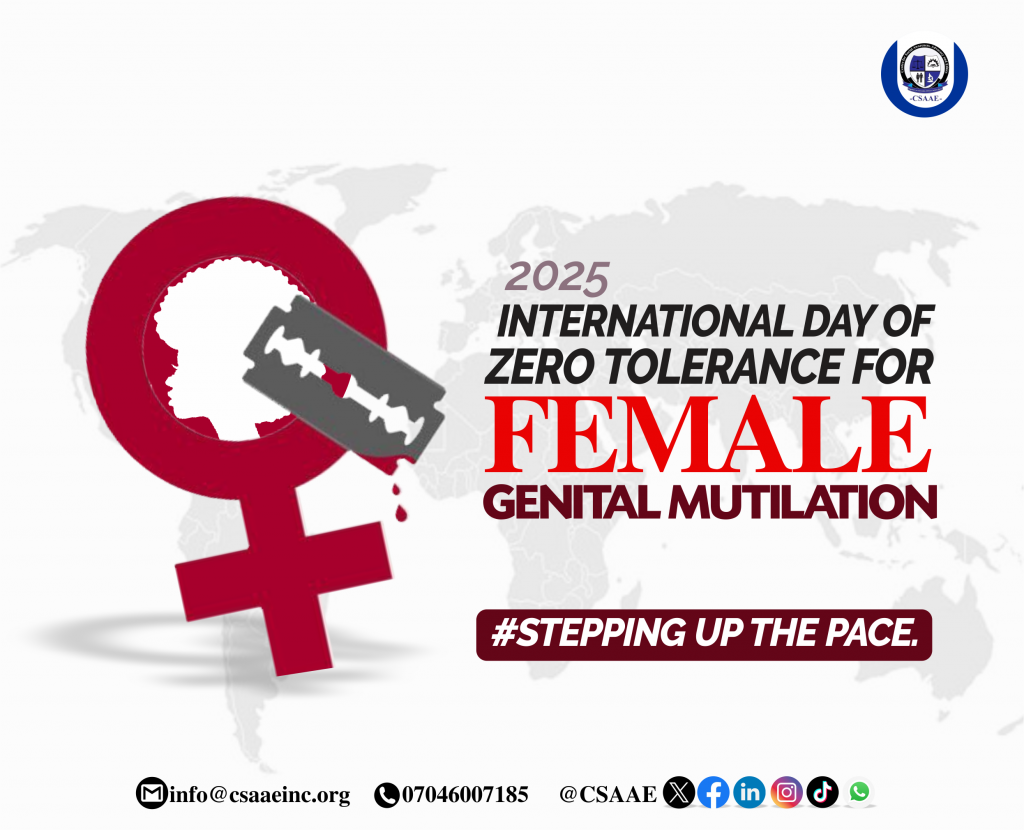
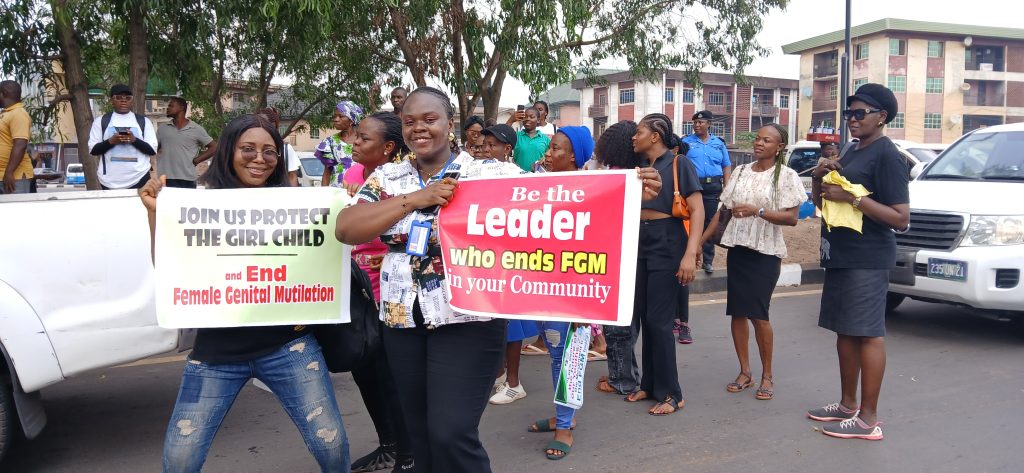
Strengthening Alliances to End FGM
The theme for this year’s International Day of Zero Tolerance for FGM, “Stepping Up the Pace: Strengthening Alliances and Building Movements to End FGM,” calls for increased collaboration across governments, organizations, activists, and the private sector. To end FGM, it is imperative for all stakeholders to unite, share resources, and advocate for stronger legal frameworks and policies to protect vulnerable girls and women.
At CSAAE, we are committed to elevating the voices of both survivors and advocates. We urge increased investment in educational programs, outreach initiatives, and support services for survivors. Furthermore, we encourage journalists to continue disseminating accurate information and challenging misconceptions surrounding FGM, ensuring that communities remain informed and proactive in their efforts to end the practice.
A Collective Responsibility
The fight to end FGM requires the participation of governments, organizations, communities, and individuals alike. On this significant day, let us recognize that every step towards the eradication of FGM counts. Together, we can create a world where no girl is subjected to this harmful practice.
It is crucial that we continue to amplify the voices of those advocating for change and provide support for survivors as they heal and rebuild their lives. The time to act is now. Every one of us has a role to play in the global movement to end FGM once and for all.
Report FGM and Seek Support
If you are aware of any instances of FGM or need support, we encourage you to contact us via our toll-free helpline at 08009001000. We are here to provide assistance, offer guidance, and help report such cases to the appropriate authorities
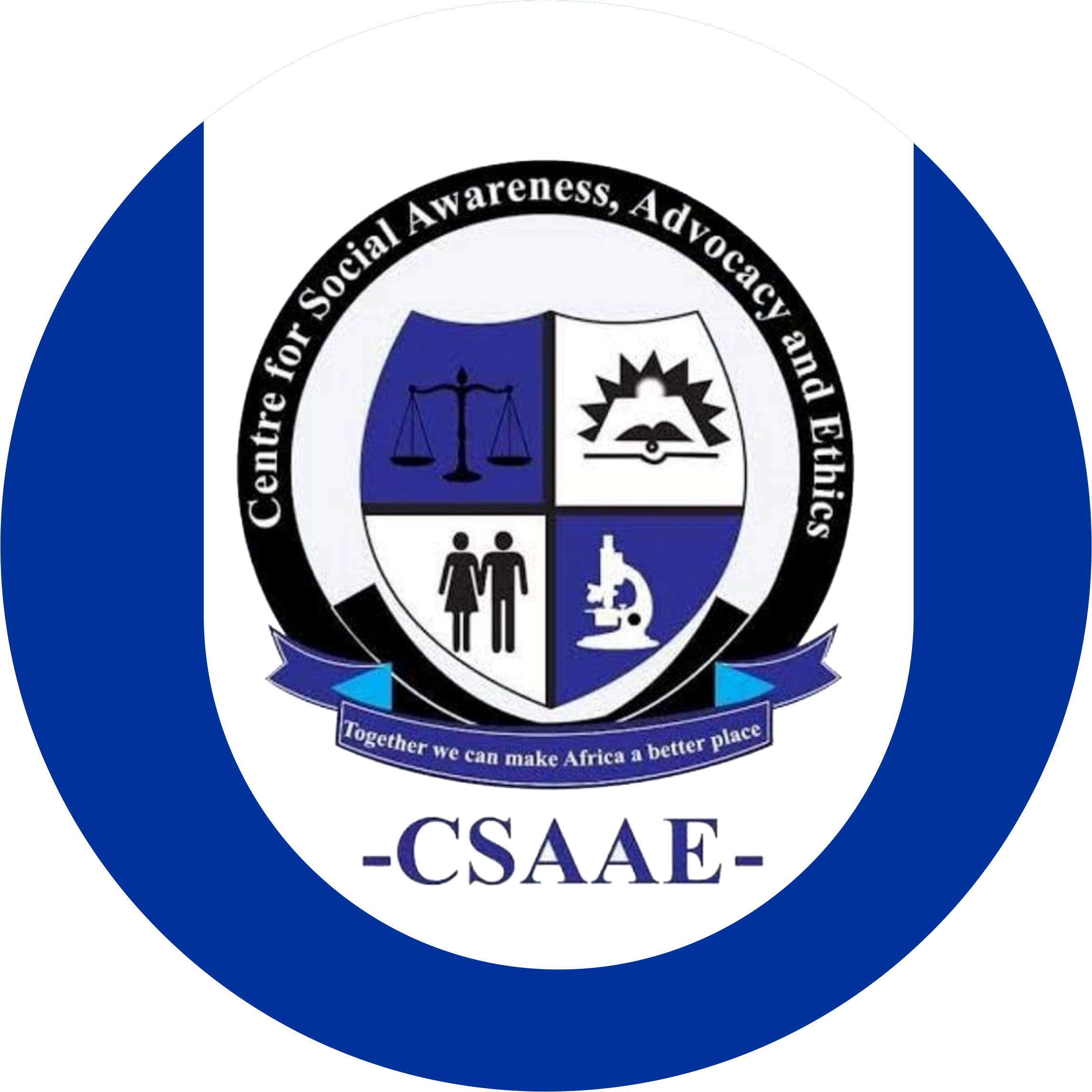



Lovely just what I was looking for.Thanks to the author for taking his clock time on this one.